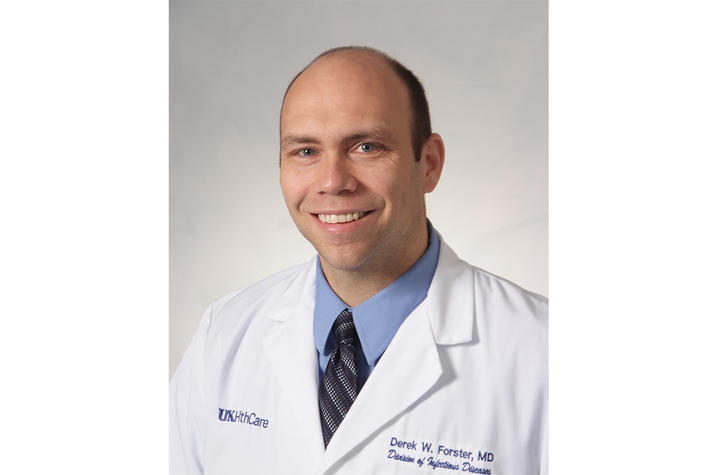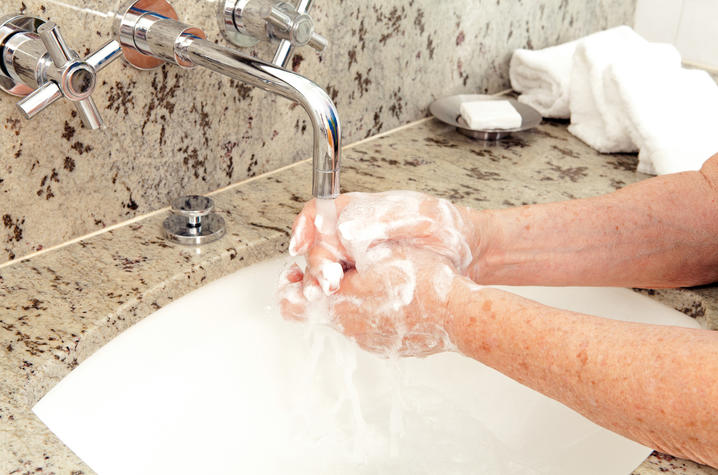Help Prevent the Spread of Coronavirus
The University of Kentucky Public Relations & Strategic Communications Office provides a weekly health column available for use and reprint by news media. This week's column is by Dr. Derek Forster, medical director for Infection Prevention and Control at UK HealthCare.
With the recent announcement regarding Kentucky’s first diagnosed cases of coronavirus disease 2019 (COVID-19), many Kentuckians may be on edge and wondering how they can avoid both contracting and spreading this disease. Here are a few frequently asked questions regarding this illness.
What are the symptoms of COVID-19?
COVID-19 is a viral respiratory illness with symptoms similar to many other viral illnesses. They include fever, cough and shortness of breath. Symptoms may appear 2-14 days after initial exposure to the virus.
How dangerous is COVID-19?
While this illness has been mild in most patients, it can cause serious health problems in certain populations and even lead to death. Patients who are over the age of 60 and/or patients who have severe underlying health conditions (such as diabetes, heart disease and lung disease) appear to be at a higher risk for developing a serious COVID-19 illness if infected.
This virus is new, and there are still many things we don’t know about it. Research on COVID-19 is ongoing and expect more information about this disease to come to light in the future.
How can I protect myself against contracting and spreading COVID-19?
Currently, there is no vaccine for COVID-19, so the best way to prevent the disease is to avoid exposure. “Social distancing” can help prevent the spread of this and other respiratory illnesses, such as the flu.
- Avoid close contact with others who display symptoms of being sick.
- Wash your hands regularly with soap and water for at least 20 seconds; if soap and water is not available, use an alcohol-based hand sanitizer with at least 60% alcohol.
- Avoid touching your face, especially with unwashed hands.
- Cover your coughs and sneezes with a tissue. Used tissues should be thrown immediately into the trash.
- Clean and disinfect objects and surfaces around your home or office with household cleaning spray or wipes.
- If you feel sick, stay away from others.
If you are at a higher risk getting very sick from the virus, you should take additional precautions, including stocking up on supplies that will allow you to stay home for a period of time and avoiding large crowds.
Per Centers for Disease Control and Prevention (CDC) recommendations, facemasks are not an effective way to protect yourself against this disease.
What should I do if I think have contracted COVID-19?
Kentucky Department for Public Health Commissioner Dr. Steven Stack has recommended “self-triage” for people who think they may have been exposed to the virus but are not displaying serious symptoms.
To help prevent further spread of the disease, call your healthcare provider directly to discuss your symptoms and determine your next steps, or call Kentucky’s coronavirus hotline at 1-800-722-5725 for guidance. If you have mild symptoms without a fever, stay home until your symptoms resolve.
For up-to-date information on coronavirus in Kentucky, including information on home quarantine and social distancing, visit kycovid19.ky.gov.
For the latest University of Kentucky information about coronavirus (COVID-19), go to https://www.uky.edu/coronavirus/. If you are with the UK community and have questions, please send to coronavirus@uky.edu.
As the state’s flagship, land-grant institution, the University of Kentucky exists to advance the Commonwealth. We do that by preparing the next generation of leaders — placing students at the heart of everything we do — and transforming the lives of Kentuckians through education, research and creative work, service and health care. We pride ourselves on being a catalyst for breakthroughs and a force for healing, a place where ingenuity unfolds. It's all made possible by our people — visionaries, disruptors and pioneers — who make up 200 academic programs, a $476.5 million research and development enterprise and a world-class medical center, all on one campus.






